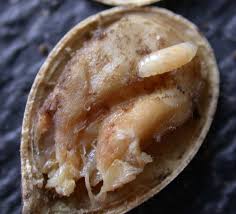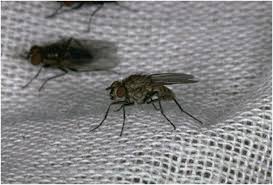

Seed corn maggot larvae and adult flies have been detected in early seeded zucchini squash fields in Gloucester County this week. They are most likely in other areas of Southern New Jersey. Seed corn maggots can also attack other vegetable crops like beans, peas, cucumbers, melons and sweet corn. Cool and wet weather increase activity and survivability of this early season pest. When adult maggots lay eggs near the planting hole, eggs can hatch in just a few days after being laid. Maggots then can burrow into seeds or seedlings, feed for a period of 2 to 3 weeks and then develop into egg-laying adults. There can be many generations per year, but activity is heightened during periods of cool and wet weather.
Adult flies are most abundant in fields with cover crops, fields that have just been tilled, or in fields that have had manure applied. When a seed or seedling is attacked, it may continue to grow, but will be weak and not produce a crop. Preventative control methods are most effective, since once larvae are found causing damage in the field, they are difficult to control underground. Some commercial insecticide seed treatments are available. See page 112 of the Mid-Atlantic Commercial Vegetable Production Recommendations, 2018 guide. This information can be downloaded at http://njaes.rutgers.edu/pubs/publication.php?pid=E001
Other preventative methods include row covers to create a barrier between the insect pest and the seeds or seedlings, waiting to plant in the field until soils and air temperatures are warm enough to quicken germination and plant growth, and selecting fields for early plantings with low organic matter and that do not remain wet for long periods.

